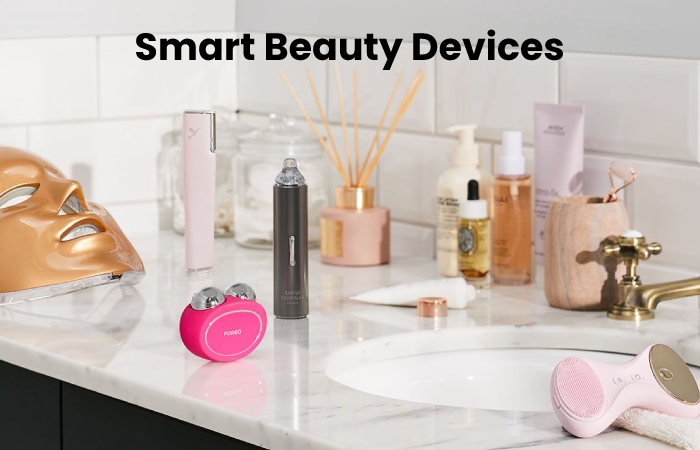Tech Beauty – The fast advancement of technology has not spared the beauty sector. Numerous recent advances have altered how businesses market their goods, manufacture, and interact with customers.
The competition will remain beaten by beauty enterprises that incorporate technological solutions into their business structures. Consumers increasingly want better internet and mobile services as smartphone usage increases. This need affects how the beauty industry uses tech. The most significant tech innovations that are affecting the beauty business will remain covered in this article.
Table of Contents
Artificial Intelligence Tech Beauty
Artificial intelligence can have many requests in the beauty industry. Algorithms can use customer data and behaviour analysis to determine the best marketing strategies for specific segments and demographics.
Additionally, Other AI programs can control the best skincare regimen by weighing data gathered on your skin composition. Like AI programs can choose the best shade of makeup for someone based on their skin tone and other factors.
And also, Many complain that finding the right shade of foundation for their skin is an immense challenge that often requires trial and error. Companies are annoying a different approach to this problem, with AI replacing traditional retail interactions.
Virtual Try-Ons
And also, AI technology has transformed platforms like Snapchat and Instagram. Beauty now turns to similar communicating tools to offer virtual “try-on” tools on their websites and apps.
A virtual try-on helps solve a similar problem as color-selecting AI: personalization. With good quality face credit and tracking technology, virtual try-on makes it possible to try different shades by applying them virtually on an image of a person’s face.
One everyday use of these apps is for watching lipstick shades. These try-on apps let consumers see many dissimilar shades before buying them at the store or online. Some businesses even allow you to make a purchase in-app.
Smart Beauty Devices

Intelligent beauty devices are bringing significant advances to the world of skincare. AI algorithms play a prominent role here. Different brands have taken various approaches to intelligent machines, ranging from simple hand-held electronic scanners to smartphone apps to smart glasses.
Smart beauty devices can examine your skin and determine its health in real-time, telling you whether you need moisturizing or specific skin treatments or solutions, such as a hydrating serum. These devices can even recommend the right moisturizer for sensitive, oily, or dry skin.
Manufacturing
Like the food industry, beauty is looking for plant-based, organic ingredient options. However, there has long been a close relationship between food and beauty. Ingredients usually used in foods, such as moringa, probiotics, coconut oil, and turmeric, are also widely used in beauty products.
The line between food and beauty products will only likely become thinner and thinner with time, leading to stronger partnerships between beauty brands and farms.
Marketing and Social Media
And also, Social media dramatically affects how beauty brands reach and sell to their customers. Instagram is a decisive stage for cosmetic and beauty companies.
Instagram has augmented its in-app shopping capabilities, allowing companies to go entirely digitally native when marketing and selling their products. Since Instagram is fundamentally a photo-sharing platform, and beauty is a graphic industry that depends on peer recommendations, the two couldn’t be better suited.
3D Makeup in Tech in the Beauty
And also, 3D makeup apps allow users to download different types of makeup and enhance their digital self through filters. Many performers have bought into the trend, making additional filters for users on Snapchat and Instagram, some of which have gone viral.
However, it is a promising strategy for beauty businesses, which can create makeup filters founded on their products. Consumers can “try on” these strainers using their profile pictures without the promise of buying actual makeup. It’s a great way to endorse products; if consumers like how they look with the filters, they may believe the real thing.
Conclusion
AR and AI beauty technology is revolutionizing how consumers shop for beauty products across the omnichannel shopping journey, from in-store to online and via social commerce platforms. It includes the ability to virtually try-on countless beauty products such as eyeliners, brow fillers, lip colours, and foundation shades. The field of beauty technology is vast and dynamic. As beauty tech integrations such as virtual try-on become essential in shopping journeys, consumers will expect these personalized shopping experiences from brands.
Also Read: Healthy Veggie Dip: What is the Healthiest thing to Dip
